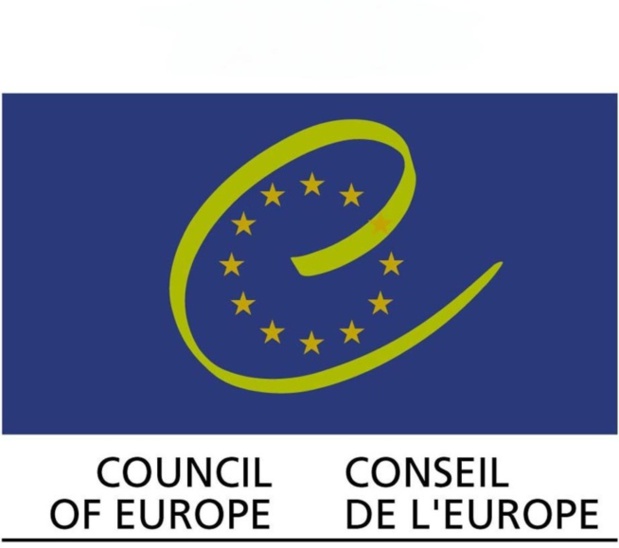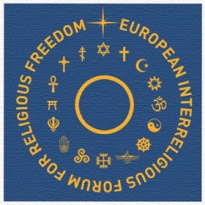
Gerard Noodt Foundation Eastern European Forum
For Freedom of Religion or Belief For Dialogue - BRIDGES
Hans@NoodtFoRB.eu vladikova@bridges-forum.org
http://www.NoodtFoRB.eu http://bridges-forum.org/
Mr Christopher Chope
Chairman of the Committee on Legal Affairs and Human Rights - PACE
House of Commons
SW1A 0AA – London
United Kingdom
Europe, the 3rd April 2013
cc: Members of the Committee on Legal Affairs and Human Rights
Mr. Chairman, Members of the Committee,
We, scholars, religious leaders or representatives of the civil society in Europe, would like to express our serious concern about the evolution of a report in preparation at the Committee on Legal Affairs and Human Rights of the PACE. This report, which is monitored by Mr. Rudy Salles, is entitled “Protection of Minors Against Sectarian Influence”.
While we all agree that children need to be protected against any harmful acts and that this protection should be enforced under national common law of European countries and the Convention on the Rights of the Child, it appears that the formulation of the report in preparation will lead to strong infringements of basic fundamental rights protected by European and other international conventions.
As stated by Mr. Salles himself and other members of the French institutions, the purpose of this report is to convince other European countries to adhere to the French model of fighting against so-called “sects” or “sectarian movements”.
This type of “fight” has been strongly criticized by French and international human rights institutions throughout the years due to the violation of the fundamental right to freedom of religion or belief it implies for religious minorities so derogatorily labeled.
In 1996, in his Annual Report, the UN Special Rapporteur on Religious Freedom noted the inadequacy of labeling certain belief groups as “sects”:
“The term “sect” seems to have a pejorative connotation. A sect is considered to be different from a religion, and thus not entitled to the same protection. This kind of approach is indicative of a propensity to lump things together, to discriminate and to exclude, which is hard to justify and harder still to excuse, so injurious is it to religious freedom.”
Needless to say that the new terminology -- “sectarian movements” -- adopted to try to avoid censure, is tantamount to the derogatory label “sects” and is subject to the same criticism.
In its General Comment No 22 on the interpretation to be given to Article 18 of the ICCPR on the Right to Freedom of Thought, Conscience and Religion, the UN Human Rights Committee stated:
“Article 18 protects theistic, non-theistic and atheistic beliefs, as well as the right not to profess any religion or belief. The terms “belief” and “religion” are to be broadly construed. Article 18 is not limited in its application to traditional religions or to religions and beliefs with institutional characteristics or practices analogous to those of traditional religions. The Committee therefore views with concern any tendency to discriminate against any religion or belief for any reason, including the fact that they are newly established, or represent religious minorities that may be the subject of hostility on the part of a predominant religious community.“
In particular the United Nations Special Rapporteur on Freedom of Religion or Belief, Asma Jahangir, expressed concern for the devastating consequences on children of these communities by such a classification in her report following her official visit to France on 18-29 September 2005:[[1]]url:#_ftn1
108. However, [the Special Rapporteur] is of the opinion that the policy and measures that have been adopted by the French authorities have provoked situations where the right to freedom of religion or belief of members of these groups has been unduly limited. Moreover, the public condemnation of some of these groups, as well as the stigmatization of their members, has led to certain forms of discrimination, in particular vis-à-vis their children.
The European Court of Human Rights, in its decision of 10 June 2010 Jehovah Witnesses of Moscow v. Russia (Application no. 302/02), has also reaffirmed the right for parents to ensure education of their children in conformity with their religious convictions:
125. The Court reiterates that Article 2 of Protocol No. 1 requires the State to respect the rights of parents to ensure education and teaching in conformity with their own religious convictions and that Article 5 of Protocol No. 7 establishes that spouses enjoy equality of rights in their relations with their children.
The European Court noted also that confrontational situations might arise when parents have different convictions. This can happen with parents from religious minorities as well as traditional denominations:
111. (…) It is true that friction often exists in marriages where the spouses belong to different religious denominations or one of the spouses is a non-believer. However, this situation is common to all mixed-belief marriages and Jehovah’s Witnesses are no exception.
And the Court confirmed that in cases of conflict both parents have equally the right to raise their children in accordance with their convictions:
125. (…) Both parents, even in a situation where they adhere to differing doctrines or beliefs, have the same right to raise their children in accordance with their religious or non-religious convictions and any disagreements between them in relation to the necessity and extent of the children’s participation in religious practices and education are private disputes that are to be resolved according to the procedure established in domestic family law.
Contrary to these international standards, the French authorities have determined that undue influence should be characterized as “sectarian” when “one or more people start to believe in certain ideas which differ from the ideas generally accepted by society”.[[2]]url:#_ftn2
French authorities issued a Circular on 22 March 2012 to primary and high schools entitled “Prevention and Fight against Sectarian Risks” where they defined a “situation of sectarian risk” for a child as “the one in which some views and practices are imposed on him with the exception of any other views or practice”. This situation, which is proper to any religious beliefs that parents are legitimate to educate their children in, is allegedly likely to harm “the possibility for the child to develop and exert a critical mind, an independent judgment”. In the context of family, the Circular considers that “the child is then likely to be under the undue influence of views and practices threatening his education”.[[3]]url:#_ftn3
Per the Circular, National Education personnel (teachers, Principals, etc.) have the duty to report any child suspected of “sectarian risk” to the special units created for the collection of such information or to the Public Prosecutor.
In its 2009 Report, MIVILUDES (the Inter-ministerial Mission of Vigilance and Fight Against Sectarian Drifts) recommended, in case of such “psychological” risk, the solution “to protect the young, and mostly the teenager, from a univocal vision of the world by arranging for him, giving the largest place possible to the non-follower parent, some windows on other realities, and this even if he, in the exclusive sphere of his follower parent, has blossomed, works well at school and does not complain about anything”.[[4]]url:#_ftn4
Therefore MIVILUDES recommends to not give equal rights to parents who are members of targeted religious minorities to allegedly protect children from their parents’ beliefs.
This constitutes discrimination and a direct violation of the right of parents to freedom of religion or belief and to raise their children according to their own beliefs protected by the European Convention on Human Rights and the International Covenant on Civil and Political Rights. It also represents a violation of Article 14 of the Convention on the Rights of the Child which provides:1. States Parties shall respect the right of the child to freedom of thought, conscience and religion.
2. States Parties shall respect the rights and duties of the parents and, when applicable, legal guardians, to provide direction to the child in the exercise of his or her right in a manner consistent with the evolving capacities of the child.
We therefore urge you to thoroughly review this matter, and make sure that the report in preparation conforms with international human rights standards that the Council of Europe is dedicated to defend.
The issue of new religious movements has been dealt with successfully with more enlightened approaches based on dialogue in most of European countries.
We are aware and trustful that you, as Chairman and members of the Committee on Legal Affairs and Human Rights, are dedicated to the respect of fundamental rights, including the rights of the child and the right to freedom of religion or belief. We sincerely hope that this matter will be examined thoroughly with all appropriate information and that fundamental rights will be secured for members of religious minorities and their children in the State Members of the Council of Europe.
Respectfully,
Sheikh Dr. Muhammad Al-Hussaini
Research Fellow in Islamic Studies
UK
Professor Silvio Calzolari - PhD
Theological Faculty of the Central Italy-Firenze
Italy
Professor Régis Dericquebourg
University Charles de Gaulle-Lille III
PhD in Social psychology
Sociologist of religions
France
Professor Ekaterina Elbakyan,
Doctor of Philosophy
Sociology and Administration of Social Processes Department,
Academy of Labor and Social Relations,
Director of Center for Religious Studies "ReligioPolis"
Russia
Dr Mohamed Elsharkawy
Chair Christian-Muslim Council
Vice Chair of the Imams and Rabbis Council of the United Kingdom
Dean of Al-Azhar College
UK
Professor Juan Ferreiro Gualguera
Prof. Ecclesiastical Law of the State
University of Coruna
Spain
Petar Grigorov Grammatikoff
Bulgarian Orthodox Church
Hierodeacon
Vice-President of Eastern European Forum for Dialogue
Bridges NGO
Bulgaria
Amir Dr. h.c. Mohamed Herzog
Founder and head of the I.G.d.M.B. e.V
Germany
Pastor Dominique Kounkou
Attorney at law
PhD in international public law
Honorary President of the Council of Christian Churches
of an African Approach in Europe
Dr. Trencsenyi Laszlo
PhD - University of Budapest
Secretary General Of Hungarian Pedagogical Association
Hungary
Reverend Dr. William McComish
Doctor in divinity (Geneva)
B.A., M.A. Trinity College, Dublin
Emeritus Dean St Pierre Cathedral, Geneva
General Treasurer World Alliance of Reformed Churches
Advisor to World Economic Forum, Davos
Switzerland
Hans Noot
Chairman of Gerard Noodt Foundation
Netherlands
Bertil Persson
National Chancellor of International Association of Educators for World Peace (UNESCO)
Scandinavian rep. University of Peace (UNESCO)
Ex-President, Swedish Dyslexia Assn
Sweden
Bashi Quraishi
Chairman of ENAR Advisory Council
Chair of European Platform for Jewish Muslim Cooperation
Secretary General of EMISCO
Denmark
Karan Singh,
President, Sikh Foundation Switzerland
Switzerland
Professor Daniele Spero
Professor at IRC (Teaching of the Catholic Religion) of the Patriarchy of Venice
Coordinator of the Intercultural and Interreligious programs of UNESCO - Club UNESCO of Venice
General coordinator of the Venetian Catholic Studium Section Science and Faith
Coordinator for the Christian-Hebrew dialogue of the Secretariat for the Ecumenical Activities of Venice
Italy
Dr. Istvan Szikinger
Prof. Tit. PhD
Attorney at Law
Hungary
Katalin Szomor
National Drug Expert
Hungary
Professor Aldo Natale Terrin
Istituto di Liturgia Pastorale di Padova
Catholic University of Milan
Italy
Anastasio Theodoris
Attorney at law
President of The Antigoni Human Rights Organization
Greece
[[1]]url:#_ftnref1 E/CN.4/2006/5/Add.4, 8 March 2006, Mission to France
[[2]]url:#_ftnref2 MIVILUDES (Inter-ministerial Mission of Vigilance and Fight Against Sectarian Drifts) 2008 Report, page 59.
[[3]]url:#_ftnref3 Circular N° 2012-051.
[[4]]url:#_ftnref4 Report page 214.







 More than 100 NGOs and personalities write to French Parliamentarians about the law on cults
More than 100 NGOs and personalities write to French Parliamentarians about the law on cults